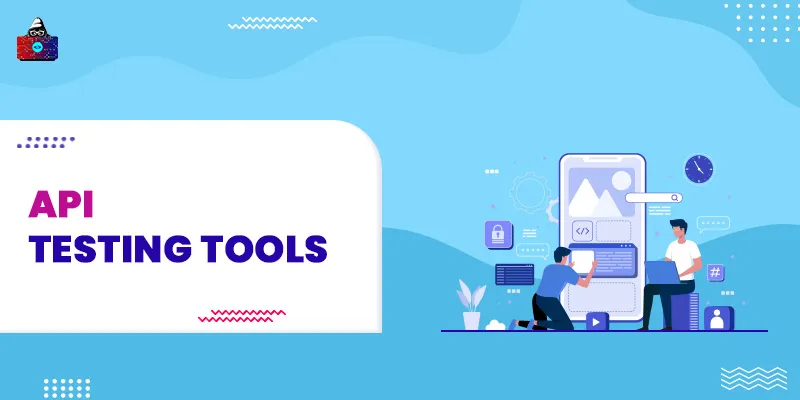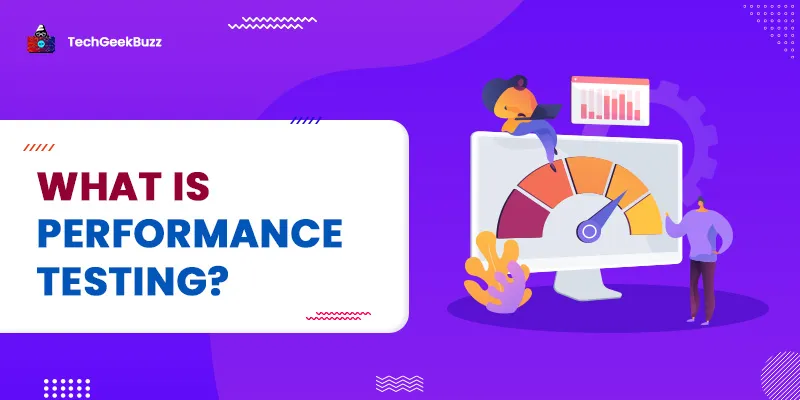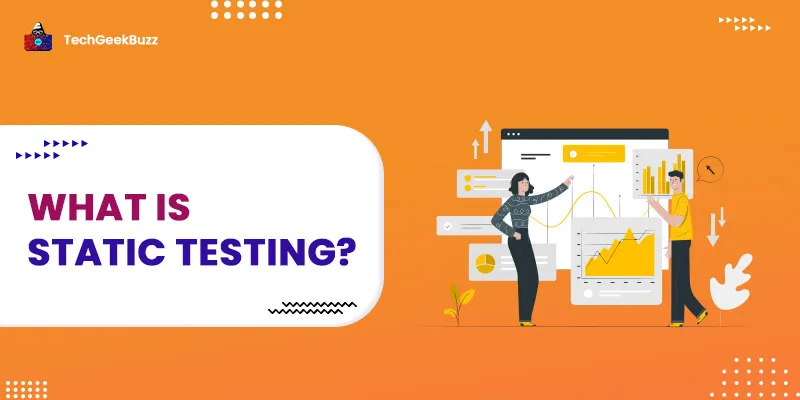API is crucial for the proper integrations, functionality, and performance of a software product. A glitch in the API integration and security can cost software a lot of functionality, performance, and stability issues. To avoid these errors, programmers and developers run rounds and rounds of testing for API. API testing is a type of software testing where the APIs are checked and tested for the desired performance and functionalities.
It is an essential step of the software development process as the stability and reliability of the final product largely depend on optimum API setups. There are several manual and automated API testing tools available for checking APIs for ideal integration, stability, performance, et cetera. Here, we will discuss some of the best API testing tools.
Best API Testing Tools
1. RapidAPI
The first name on our list is RapidAPI. It is the largest API marketplace with over a million programmers and developers preferring it for automated API testing. RapidAPI allows easy collaboration with external teams. It is a free and open-source platform.
RapidAPI provides developers with the liberty to run API testing on internal APIs too and doesn’t limit the number of APIs one can test through the platform. It assists in the creation and management of stable APIs, from development to deployment.
Highlights:
- Able to run tests for any type of API, including GraphQL, SOAP, and REST .
- Can set up comprehensive and stable API tests.
- Allows unlimited tests.
- Can run API tests continuously for multiple locations; no constraints on geographies.
- Supports seamless integration.
- Supports easy and quick integration with CI/CD to Jenkins, GitHub, GitLab, etc.
- Also allows the creation of tests for detailed and deep API validation.
- Offers performance testing, functional testing, and basic software automation testing too.
- Can send real-time alerts in SMS and email formats.
- Has a drag-and-drop editor for a friendly visual test setup.
- Provides detailed execution reports.
- Can send alerts to team members thereby elevating the quality of team interactions.
RapidAPI’s centralized monitoring and efficient API functionality testing assist in developing stable and reliable software products. The platform provides Basic, Starter, Pro, Ultra, and Enterprise plans.
2. REST Assured
REST Assured is an open-source platform with valuable features and offerings. One of the best automated REST API testing tools, it is a Java-specific platform designed for running java applications and providing programmers and developers with a stable and reliable platform for API testing.
Highlights:
- Overcomes the limitation of the need for HTTP expertise to run efficient web testing.
- Imbibed with some in-built functions thereby reduces the need for coding from scratch.
- Supports BDD (Behavior Driven Development) syntax; Given/When/Then.
- Makes REST API testing simple and seamless.
- Can be easily integrated with Serenity BDD. This allows users to combine REST and UI tests.
- Generates detailed and insightful reports.
Despite its strengths, REST Assured lacks support for SOAP API and supports only Java. The web services test tool needs at least Java 8 for REST Assured v4.0.0 and later.
3. Postman
Postman is another reliable, stable, and affordable solution for API testing. It is available in web and desktop versions. Its easy user interface and detailed reporting have strengthened its position in the software testing niche.
Highlights:
- Supports easy and interactive team collaborations.
- Seamless, quick, and few-step set-up parameters on method calls.
- Can store and execute commands.
- Offers API development capabilities along with testing.
- Easy to use REST-client.
- Also supports exploratory testing.
- Compatible with Windows, macOS, Linux, and Chrome.
- Supports RAML and swagger formats.
- Imbibes with run, test, document, develop and monitor features.
- Friendly with novice programmers as it does not require a need of learning a new language.
- The platform’s interface can be used to write Boolean tests.
- Assists in the improved collection of API elements, such as monitors, tests, mock servers, and documentation.
Postman provides the following pricing plans:
- Team : $12/user/month
- Business : $24/user/month
- Enterprise : $69/user/month
It also provides a free plan with restricted features. Compared to its peers, the Enterprise plan is expensive. Also, you can only test one API at a time with Postman.
4. JMeter
Apache JMeter is an open-source solution. It's equipped with valuable amenities to stabilize the API testing process. The platform is designed in such a way as to mitigate the risks and elevate the user’s comfort. JMeter also supports per-thread cookies. JMeter is imbibed with functionality that lets developers replay the test result thereby assisting in bug detection. It can also automatically work with CSV files further fueling team collaborations and interactions.
This helps in creating unique parameter values for API testing rapidly and efficiently. Its integration with Jenkins allows quick CI pipeline integration. The platform is compatible with both static as well as dynamic resources. JMeter lets users work on a wide range of programming languages and provides no constraint on test setups. It has a Groovy library and is widely used by developers for running JDBC database connection tests.
In addition to automated API testing, JMeter also offers load testing and performance testing of software products. It is cross-platform and generally works on the protocol layer. To use JMeter, however, requires professional testing experience. Also, it lacks support for AJAX requests.
5. Karate DSL
An open-source platform efficient for API automation tests, Karate DSL is built with an attractive yet simple interface to allow programmers and software analysts to run API tests effectively and easily.
Highlights:
- Can use domain-specific language.
- Supports multi-thread switching.
- Able to test GraphQL.
- Provides API testing, performance testing, and mocks in a unified framework.
- Supports JSON as well as XML.
- Allows the creation of BDD tests in a simple manner.
- Elevates security, speed, and safety throughout the testing process.
- Able to run and generate effective reports.
- Doesn’t need a compulsion of Java for writing tests.
- Friendly for novice and maven software testers.
- Supports multi-thread execution and configuration switching/staging.
- Version 0.9.3 has built-in compatibility for WebSocket.
- Supports reusing of Payload-data.
The platform is based on the Cucumber library which makes the creation of API scenarios a rapid and hassle-free process.
6. Apigee
Apigee is a cross-cloud API testing tool. It is a valuable and useful tool for running API tests on software effectively and accurately. It elevates the accuracy and reliability of tests. Along with API testing, Apigee also possesses some API management features.
It has an in-built function to recognize anomalies in the system by the aid of tracking API traffic, response times, and error rates. Apigee comes with easy control points and does not present stringent controlling points to users.
A Java-powered platform, Apigee supports Node.js. It also can be easily combined with editors such as Swagger to build APIs. It allows programmers to easily monitor, deploy and design APIs. Furthermore, the developer portal is customizable. As the system is cross-cloud, it allows easy creation of API proxies with the aid of OpenAPI Specification and further enables deployment in the cloud also.
Apigee can support on-premise or hybrid deployment models on a single code base. The limitations of the tool are:
- Allows only one active user in a proxy.
- Poses compulsion on the use of API to turn on SSL.
- Doesn’t support Webhooks and its policies.
The scalability, flexibility, and security provided by Apigee elevates its preference among professional software testers.
7. Katalon Studio
One of the best web services test tools, Katalon Studio is an efficient and performance-driven API testing tool. It is an open-source platform and can test web, mobile, and desktop applications. It provides software testers complete flexibility through various steps of the API testing process.
Highlights:
- Supports SOAP and REST requests.
- Supports CI/CD integrations.
- Listed among the best tools to test restful web services.
- Can combine UI and API/web services for platforms like macOS, Windows, and Linux.
- Supports data-driven approach throughout the testing process.
- Includes manual and Groovy scripting models.
- Can easily import tests from Swagger, WADL, WSDL, Postman, etc.
- Elevated test coverage.
- Equipped with a robust framework.
- Supports API setup with the aid of UI testing.
- Generates insightful and detailed reports.
- Has in-built and custom code templates.
- Supports AssertJ libraries thereby creating smooth assertions with BDD.
- Suitable for both novice testers as well as professionals.
Some of its major limitations are:
- Debugging process is quite difficult.
- Cannot display the compile-time errors.
- Doesn’t support distributed testing.
The platform is emerging as a complete end-to-end solution for developers and programmers. In addition to API testing, Katalon Studio also allows exploratory testing.
8. ACCELQ
An agile testing platform, ACCELQ is a cloud-based API testing tool. The platform is efficient in API testing and functional testing. It eliminates the need of writing unified code. The added support for chain API tests makes it a complete solution for software quality analysts.
Highlights:
- Has an in-built defect tracking system.
- Compatible for teams of all sizes.
- A cost-saving option as it lets programmers save 70% of the cost of maintaining software testing.
- AI-powered.
- Supports API test case management, planning, and execution.
- Can manage the dynamic environment.
- Enables end-to-end validation.
- Seamless and efficient integration with JIRA and CI/CD.
- Can maintain UI and API test automation in the same simplified flow.
With all these exciting features, ACCELQ has gained stable popularity. The platform can be leveraged for $390/user/month in professional plans and $440 per user per month in a unified web plan.
9. ReadyAPI
Another popular API testing tool, ReadyAPI. It is developed and owned by Smartbear and works as a web service launcher as well as an API testing tool. It has an interactive dashboard that ensures efficient reporting throughout the testing process.
With all these valuable and ideal amenities, the platform works ideal for DevOps and Agile teams. The pricing models of ReadyAPI are as follows:
- API Test Module: $749/license
- API Performance Module: $6,449/license
- API Virtualization Module: $1,270/license
The platform provides solutions for all types of web services and mitigates dependencies and risks. ReadyAPI supports CI/CD integration smoothly and allows parallel execution of tests. It is said to be a four-in-one tool as it provides API performance testing, API virtualization, API functional testing, and API security testing.
The platform is known to provide flexible and scalable tests. It also allows the creation and setup of data-driven tests. Not only this, but ReadyAPI also supports Git, Jenkins, Azure, Docker, etc. The added support from the command-line for automated testing further elevates its performance and efficiency. It can efficiently reuse the tests.
10. SoapUI
A powerful tool for automated API testing, SoapUI is a reliable and effective solution for programmers and software quality analysts. It allows testing SOAP, GraphQL, REST, and web services.
H ighlights:
- Can efficiently create custom codes with the aid of Groovy.
- Can store and save progress.
- Reduces the manual intervention for the transfer of data from one response to various API calls.
- Supports point and click and drag-and-drop.
- Can reuse scripts.
- Supports data-driven testing.
- Supports asynchronous testing.
- Compatible for integration with CI/CD.
- Assists in creating complex scenarios.
- Can extract data from easy formats like databases, files, and excels and assist in the stimulation of consumer interactions with API.
Despite the many advantages, some disadvantages of SoapUI are:
- Absence of documentation.
- Not suitable for mobile app testing.
- Some features can be confusing for beginners.
Due to powerful and ideal features incorporated, the platform is used extensively by Microsoft, Oracle, HP, NASA, Apple eBay, and other organizations.
Takeaways
API testing is an important part of the software testing process . Programmers, developers, and software analysts working coherently for a stable software product adopt various tools for ensuring the quality of the same. In such a scenario, getting API testing right is one of the paramount factors deciding the success or failure of a software product.
From this list of web API testing tools just discussed, one can compare the tools to choose the best and can get optimum ROI by choosing an ideal tool for API testing. Remember, always finalize a tool keeping the budget, your team specifications, and other critical factors.
People are also reading:
- Best Cross Browser Testing Tools
- Best SAP Testing Automation Tools
- Automated Browser Testing with Edge and Selenium in Python
- What is Software Testing Life Cycle?
- Integration Testing Tools
- REST API Interview Questions
- Regression Testing Tools
- Best Cloud Testing Tools
- Network Testing Tools to Improve your Network Security
- Open Source Security Testing Tools



![What is Waterfall Model? [Phases, Pros, & Cons]](/media/new_post_images/Waterfall_Model.webp)

Leave a Comment on this Post